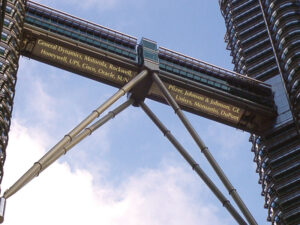 A test drive won’t tell you.
A test drive won’t tell you.
Test translations never work.
They only provide a distorted perception of a translation company’s abilities. Given the time, and the will, any translation company can polish a single page document to perfection. The true litmus test is how would they perform under a tight deadline with your 300-page manual.
 You can’t teach an old dog new dialects.
You can’t teach an old dog new dialects.
Gone are the days when translation companies consisted of a few erudite multilingual wordsmiths attempting to translate a multitude of complex technological material.
Today, the variety of technical fields is just too great.
At One Planet we only select the finest freelancers from our database of 3,000 rigorously tested professional translators – specifically chosen for every job we do.
 Quality check-list.
Quality check-list.
To produce quality translations consistently, day in and day out, a translation company must:
- understand your technology and associated terminology;
- be reliable, competent, easy to work with and competitively priced;
- use the latest computer tools to increase the efficiency of production, localize displays and other software driven applications; and,
- provide you with statistics showing productivity increases.
 Tails I win. Heads you lose.
Tails I win. Heads you lose.
There’s no luck involved in the selection of a first-rate translation company. It’s not a subjective choice, such as buying art.
You don’t have to be an art critic to know whether you like a painting or not. But when it comes to picking translation services, it’s best to ask the right questions. And more importantly, to get the right answers.
The importance of sound project management cannot be overstated. Good translation managers produce good work.
When speaking with potential translation project managers ask them these four telltale questions:
- What is your production process? Look for a clearly defined process with quality control checks built in.
- Do you participate in the preparation of the quote? You wouldn’t want your project manager to be stuck with a budget and delivery date determined by someone else.
- Do you create a terminology bank? Good translation companies typically start by creating a terminology bank. It’s used to ensure consistency of terminology between translators and editors
throughout the entire project. It also serves as the backbone for all future projects. - What translation memory tools do you use? Look for terms such as Trados, Déjà vu, XML/TM and Wordfast.
If they balk on any of these questions, it’s time to look elsewhere.
 We made a world of difference for them.
We made a world of difference for them.
Let us make a world of difference for you.
We bridge language and cultural gaps for multinational corporations seeking to effectively communicate and compete in the global marketplace. We are committed to improving the quality of your international business and the efficiency of your offline and online support. We are proud to deliver significant value to our clients through technological expertise, comprehensive methodologies and a highly experienced staff.
Our team of translators and editors, led by a dedicated project manager, will become an extension of your team.
Your goals become our goals.
And your success becomes the only true measure of our success.
 We cover all the bases!
We cover all the bases!
At One Planet we have developed a comprehensive methodology that is applied to every project no matter how big or how small. We cover all the bases, so you do not have to continue to look at any other translation company. But please do. They will only confirm your choice of picking us.
We take specific steps to ensure that your translation uses the same industry specific terminology as in English. Ask us about Expert Editing and how we can guarantee quality. Quality work is a matter of process, not a matter of getting some specific terminology guessed right the first time.
 Protect your investment.
Protect your investment.
Avoid surprises.
Come to One Planet for all your globalization needs. You will be glad you did.

